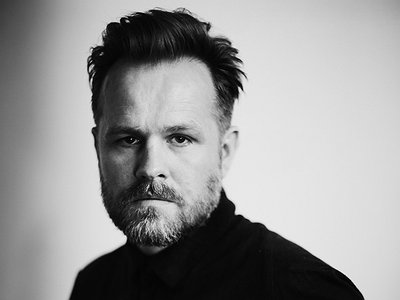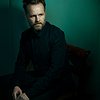Part 2
Could you take us through a day in your life, from a possible morning routine through to your work? Do you have a fixed schedule? How do music and other aspects of your life feed back into each other - do you separate them or instead try to make them blend seamlessly?
My children are the masters of my schedule. I structure my life, and my work day in a way that enables me to have as much time as possible with my family. That means trying to work while kids are at school. And it also means working while they are sleeping, if I need more hours in the workday. I’d rather cut down on sleep than cut down on my time with family. I’ve never been good with routine, and so I don’t have a fixed schedule for each day. I move as fluidly as I can between a few different posts and I usually have more than one project going on simultaneously. Usually one will be the main-thing that I’m working on, but I can take a break from it and dip into something else, and get a clearer perspective when I return. I try to keep a clear divide between home and work, which is a challenge because it’s all the same building.
Could you describe your creative process on the basis of a soundtrack or album that's particularly dear to you, please? Where did the ideas come from, how were they transformed in your mind, what did you start with and how do you refine these beginnings into the finished work of art?
The ideas can come from anywhere. But in film, there is already a framework that has been laid out. So the challenge is to find a creative way into that framework. I usually think long and hard before I put anything down, and I try to imagine what the purpose of the score might be and question every aspect of it. Then I start with throwing ideas down fast and seeing what sticks, playing around quite freely with sounds and structures, or melodies. The most difficult is always to have a blank page. But the moment that something is scribbled on that page then I feel like the process has started. Once I make a start, I often think about a piece of music as a sculpture chiseled in a block of granite. I start rough, then I gradually carve out the details until I feel like I have a finished piece in front of me.
There are many descriptions of the ideal state of mind for being creative. What is it like for you? What supports this ideal state of mind and what are distractions? Are there strategies to enter into this state more easily?
I find that creativity comes in quick bursts and it’s important for me not to force it. I’m nocturnal by nature so I’m usually able to get more easily into this state when the life outside has stopped. The idea usually comes quick but that’s when the hard work begins.
How do you see the relationship between the 'sound' aspects of film music and the 'composition' aspects? How do you work with sound and timbre to meet certain production ideas and in which way can certain sounds already take on compositional qualities?
Sound in itself can evoke so much. I really do think about sound and timbre, as much as I do about notes and rhythms. Even more sometimes. I do enjoy participating in the final sound mix of a movie, where all things are placed in context, not just with the images but with the ambient sound and the sound design and the voices and the vibrations in a great cinema system. It’s not a new idea, but lately the growing trend in overlapping sound-design and score is a very exciting one for me. I think that the great sound designers think somewhat like composers, and so why should a composer not think like a sound designer sometimes?
Our sense of hearing shares intriguing connections to other senses. From your experience, what are some of the most inspiring overlaps between different senses - and what do they tell us about the way our senses work? What happens to sound at its outermost borders?
Remove one sense, and you heighten the others. Right? I think that sound and smell is an intriguing overlap. We just haven’t got the technology quite yet. I wrote some music with my friend Nico Muhly some years ago, for an installation called Scent Opera, they were experimenting with narrative told only through smell and music, it didn’t work in the same way a movie or an opera does, but it was certainly a new medium that needs to be further explored.
Art can be a purpose in its own right, but it can also directly feed back into everyday life, take on a social and political role and lead to more engagement. Can you describe your approach to art and being an artist?
Even though music can certainly be political, it also offers refuge from the daily struggles and I like that about it. Hip-hop is a very important medium for social commentary, but instrumental music isn’t best suited for that for example. I don’t set out to make music that is in any way political in itself but one of the reasons that I want to work with theatre or cinema, or artists in other disciplines is that those collaborations often deal with important social or political questions.
It is remarkable, in a way, that we have arrived in the 21st century with the basic concept of soundtracks still intact. Do you have a vision of music, an idea of what film music could be beyond its current form?
It’s possible to hear music in many things other than from “organized sound”. What I’m mostly hoping for from future technology is to bring more elasticity, and potential to shape sound in more intuitive and musical ways than we have with linear timelines on computer screens. I suppose that it means making the machines and their interfaces somehow more human.






